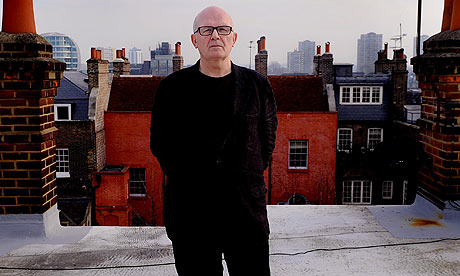
Gordon Burn, who has died aged 61, was without a doubt one of the greatest – and arguably underrated – British writers of his age.
Burn wasn't just someone who could spin a good yarn. He was a writer who applied years of journalistic experience to the fictional process to create a new form: fiction as reportage. And though he wasn't the first writer to use real-life crimes as the basis for novels – Norman Mailer and Truman Capote got there first – he was by far the best practitioner in contemporary Britain. His influence can be seen in David Peace's dark-hearted Red Riding novels (and indeed in Peace's blurring of fact and fiction in The Damned Utd) and in a new generation of hard-hitting writers who have unearthed stories on their own doorsteps.
As recently as last year, he was pushing the role of journalist, novelist and modern myth-maker into new territory with his book Born Yesterday (subtitled The News As a Novel) – the first accurate reflection of the 24-hour, rolling news culture, which also drew random strands of the modern world into a cohesive meditation on today's media and its impact on society.
Newcastle-born Burn's background as a journalist for publications such as Esquire and the Guardian furnished him with the skills that allowed him to go the extra yard. He understood that research was one thing, but total immersion in the subject at hand guaranteed a much stronger, more believable perspective. This is just what he did in writing his 1984 book Somebody's Husband, Somebody's Son: The Story of Peter Sutcliffe, which placed the Yorkshire Ripper's killing spree in a broader social context and treated Sutcliffe's family as unwitting victims too.
In his attempt to address the many unanswered questions that hung over the case, Burn lived and worked in Sutcliffe's home town and was granted unprecedented access to his family. Surrounding himself with the horror of Sutcliffe's life enabled Burn to tease out the complexities of a man reduced by the tabloid media to a B-movie monster; in doing so he influenced a generation of younger writers for whom northern England suddenly became a place full of simmering tensions and dark secrets, every bit as foreboding and evocative a backdrop as Ellroy's Los Angeles or Rankin's Edinburgh.
Though not set in the north, Burn's masterwork was Happy Like Murderers, a staggering account (Amazon calls it a "vile catalogue") of the lives of multiple murderers Fred and Rosemary West – one of the great true crime books that works equally well as a novel. Again, Burn gained unprecedented access to case files and West family histories to weave the back stories of the murderers, the murdered and the survivors into a flawlessly crafted and non-judgmental book that once read is never forgotten. He delved deeper than most writers would have dared, and it is testament to his strength that he emerged, if not unscathed, then still writing.
Ultimately, over a lifetime's work, Burn created a grand narrative for the north – in fact, for all – of England in the late-20th century, which has yet to be equalled. His influence spreads far and wide and will continue to do so.

